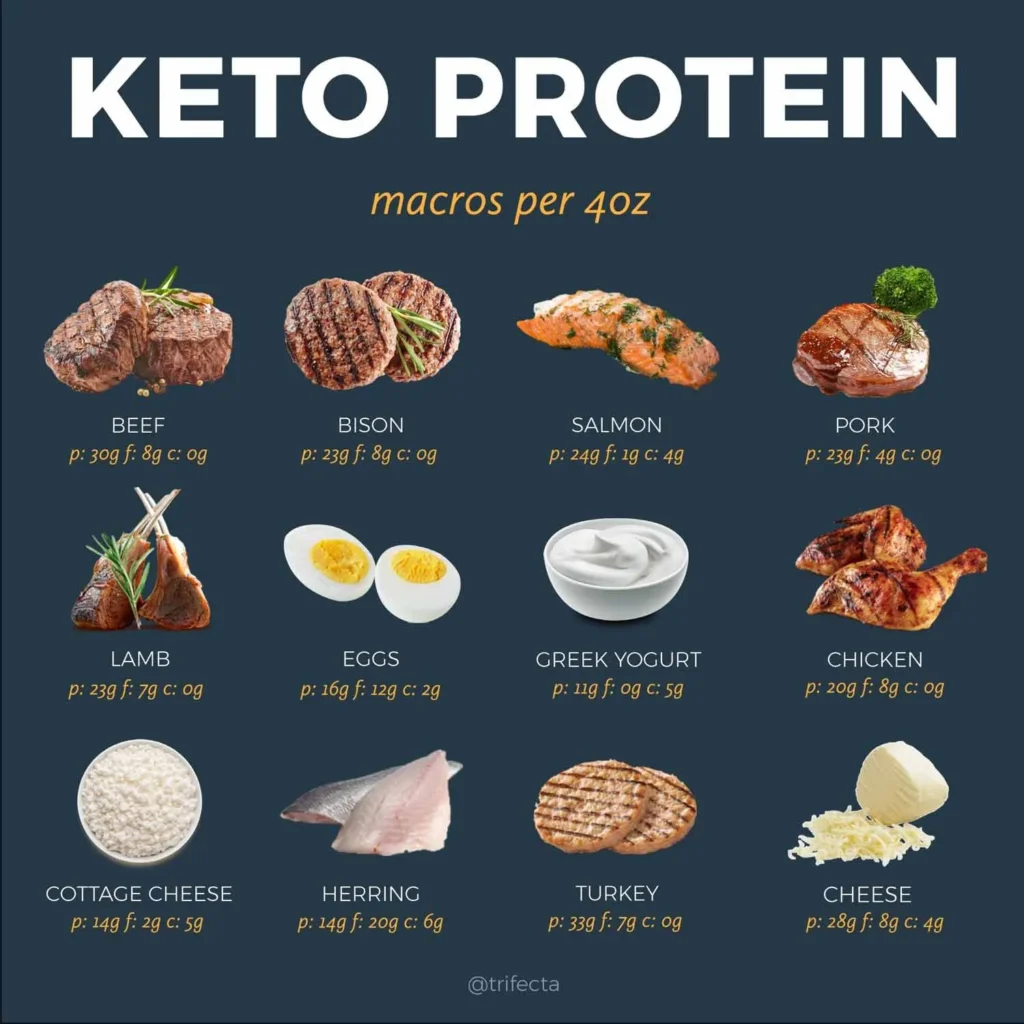Keto-Friendly Protein Sources: A Guide to Meeting Your Nutritional Needs
The ketogenic diet has gained popularity in recent years for its effectiveness in weight loss and improving overall health. This low-carb, high-fat diet requires followers to reduce their carbohydrate intake and increase their consumption of healthy fats and proteins. While many people focus on the high-fat aspect of the ketogenic diet, it’s important not to overlook the importance of protein in meeting your nutritional needs.
Protein is an essential macronutrient that plays a crucial role in building and repairing tissues, supporting immune function, and maintaining muscle mass. For those following a ketogenic diet, it’s important to choose protein sources that are low in carbohydrates and high in quality nutrients. In this article, we will explore some keto-friendly protein sources to help you meet your nutritional needs while on the ketogenic diet.
1. Meat
Meat is a great source of protein for those following a ketogenic diet. Opt for lean cuts of meat such as chicken, turkey, and pork. These meats are low in carbohydrates and high in protein, making them an excellent choice for those looking to meet their protein needs while on the ketogenic diet. Additionally, organ meats such as liver and kidney are also great sources of protein and essential nutrients.
2. Fish
Fish is another excellent source of protein for those following a ketogenic diet. Fatty fish such as salmon, mackerel, and sardines are not only high in protein but also rich in omega-3 fatty acids, which are essential for brain health and reducing inflammation. Other low-carb fish options include tuna, cod, and trout.
3. Eggs
Eggs are a versatile and affordable source of protein that can be enjoyed in a variety of ways while on the ketogenic diet. They are low in carbohydrates and high in protein, making them an excellent choice for breakfast, lunch, or dinner. Eggs also contain essential nutrients such as vitamin D, choline, and antioxidants.
4. Dairy
Dairy products such as cheese, Greek yogurt, and cottage cheese are good sources of protein for those following a ketogenic diet. Opt for full-fat dairy products to ensure you are getting enough healthy fats along with your protein intake. However, be mindful of the carbohydrate content in dairy products and choose options that are lower in carbs.
5. Nuts and seeds
Nuts and seeds are great sources of protein and healthy fats for those following a ketogenic diet. Almonds, walnuts, chia seeds, and flaxseeds are all excellent choices for adding protein to your meals and snacks. However, be mindful of portion sizes as nuts and seeds can be high in calories.
6. Protein supplements
If you are struggling to meet your protein needs through whole foods alone, protein supplements can be a convenient option. Whey protein, collagen protein, and plant-based protein powders are all suitable choices for those following a ketogenic diet. However, be sure to choose a protein supplement that is low in carbohydrates and free from added sugars.
FAQs
Q: How much protein do I need on a ketogenic diet?
A: The amount of protein you need on a ketogenic diet will vary depending on your age, gender, activity level, and health goals. As a general guideline, aim to consume around 0.8-1.0 grams of protein per kilogram of body weight per day. However, if you are very active or looking to build muscle, you may need to increase your protein intake accordingly.
Q: Can I eat too much protein on a ketogenic diet?
A: While protein is an essential nutrient, consuming excessive amounts of protein can hinder your body’s ability to enter and maintain ketosis. This is because excess protein can be converted into glucose through a process called gluconeogenesis, which can raise blood sugar levels and kick you out of ketosis. It’s important to strike a balance and consume the right amount of protein for your individual needs.
Q: Are plant-based protein sources suitable for a ketogenic diet?
A: Yes, plant-based protein sources can be suitable for a ketogenic diet. Options such as tofu, tempeh, edamame, and seitan are all low in carbohydrates and high in protein, making them excellent choices for vegetarians and vegans following a ketogenic diet. Additionally, nuts, seeds, and certain vegetables can also provide a significant amount of protein while keeping your carb intake low.
Q: Can I get enough protein from vegetables on a ketogenic diet?
A: While vegetables are not as protein-dense as animal-based sources, they can still contribute to your overall protein intake while on a ketogenic diet. Opt for protein-rich vegetables such as spinach, broccoli, Brussels sprouts, and asparagus to help meet your protein needs. Additionally, legumes such as lentils and chickpeas can also provide a good amount of protein while keeping your carb intake in check.
In conclusion, protein is an essential nutrient that plays a crucial role in supporting overall health and well-being, especially for those following a ketogenic diet. By incorporating a variety of keto-friendly protein sources into your meals and snacks, you can ensure you are meeting your nutritional needs while staying in ketosis. Experiment with different protein sources to find what works best for you and enjoy the benefits of a well-rounded, protein-rich ketogenic diet.
